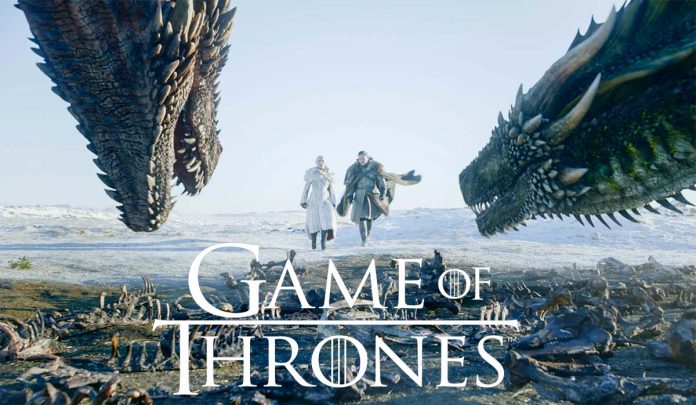Forget about HBO‘s various “Game Of Thrones” spinoffs, Westeros may finally appear on the big screen. THR reports that Warner Bros. has a movie based on George R.R. Martin‘s fantasy series in development, and it could end up being more that one. However, it’s in the earliest stages of development without a cast, director, or even writer attached. In other words, don’t expect this project to hit multiplexes for a while.
READ MORE: Fall 2024 TV Preview: 40 Must-See Series To Watch
But the news shouldn’t surprise “Game Of Thrones” fans either. Original series showrunners David Benoiff and Dan Weiss had the idea to close out their popular series with three feature films before 2019’s truncated final seasons. And Martin has kicked around the idea of a film based on his books for even longer than that. It’s not until recently that Warner Bros. and HBO took an active interest in the idea, however. The reasons there are simple: “Game Of Thrones” was the networks’ tentpole series for the better part of the 2010s; why dampen its stature as TV’s most popular show by making it a cross-platform enterprise?
So what brings about this change of heart, and why make a “Game Of Thrones” movie now? For one, the landscape of TV is much different since the original series wrapped five years ago on both ends. New people are at the top of the pyramid at both HBO and Warner Bros. (Casey Bloys heads the network now, with Mike De Luca and Pam Abdy running the studio, and David Zaslav is the highest at CEO) who want to explore Martin’s world from a new angle. And current audiences are more relaxed about a rigid divide in quality from movies to TV. HBO’s “The Penguin” proves to Warner Bros. that a limited series spinoff of a big-budget movie may bring in both critical acclaim and high viewership numbers. Max‘s upcoming “Dune: Prophecy,” which premieres later this year, could provide further evidence to that notion.
And HBO’s new adaptation of J.K. Rowling‘s “Harry Potter” series may be the biggest gamble of all for betting on an IP’s cross-platform appeal. The network’s plans for that series (one season per book) are massive, and Warner Bros. would only go ahead with the idea if they felt the property couldn’t thrive on both large and small screens. In short, the whole concept of a series or franchise confined to either movies or TV no longer applies in the current entertainment landscape. Look at “Lord Of The Rings” for further proof: Prime Video‘s “The Rings Of Power” exists in its separate TV domain as Warner Bros. has new films of Tolkein‘s saga in development. The difference (in writing and production quality, in viewership numbers) between the film and TV mediums is negligible now, and the next 5-10 years will unfurl the consequences of that.
But plans for a “Game Of Thrones” movie shouldn’t derail HBO’s plans for further spinoffs. “House Of The Dragon” just finished its second of four planned seasons, and “A Knight Of The Seven Kingdoms” aims for a 2025 premiere. Several other spinoffs remain in development, too, but not the one that centers around Kit Harington‘s Jon Snow after the events of the original series. And storylines set after Benioff and Weiss’ show sound like what franchise fans should expect from a possible “Game Of Thrones” movie. All of HBO’s spinoff so far are prequels; wouldn’t a film sequel make sense in that regard?
But that’s all speculation. For now, expect that a “Game Of Thrones” movie will reach cinema screens by the time the 2020s end: evidence of a broader trend that collapses the film and TV mediums into one broader entertainment conglomerate.



